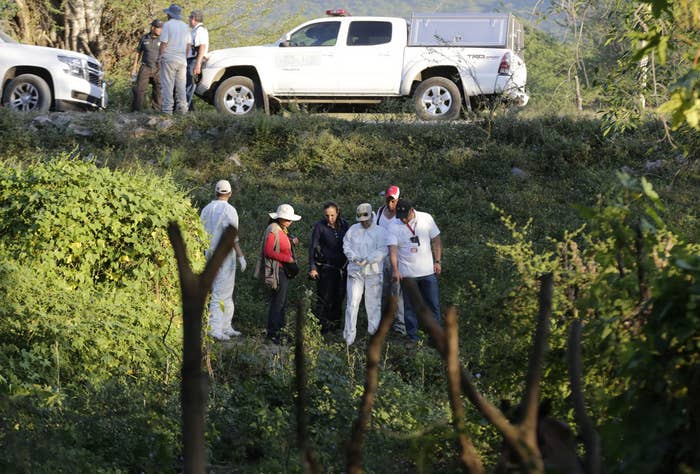
MEXICO CITY, Mexico — A group of independent forensic experts said Saturday that there is not enough evidence to conclude that remains found at a trash dump belong to 43 missing students, contrary to what Mexican officials determined in January.
The Argentine Forensic Anthropology Team, or EAAF in Spanish, cited a number of irregularities, including incomparable DNA samples taken from the victims' families by the EAAF and by Mexican authorities.
"The EAAF still does not have scientific evidence to establish that, in the Cocula trash dump, there are human remains that belong to the students," said an EAAF document released Saturday.
In January, Attorney General Jesús Murillo Karam declared that, on the night of September 26, 43 students were taken by police officers in Iguala, in Guerrero State, handed over to a local criminal gang, taken to a trash dump and incinerated in a pyre that burned for more than 12 hours.
The case has exhibited not only the close ties between organized crime and local officials but also the deep-seated distrust that many in Mexico have toward the government's ability and willingness to conduct criminal investigations. Relatives of the disappeared students, for example, have said that they trust only the Argentine experts and that some among them simply mock the authorities' assertions.
It also represents the biggest political crisis to date for President Enrique Peña Nieto, who has spent much of his time in office focusing on the economy and constitutional overhauls.
The attorney general's office responded to the EAAF on Monday, saying that they had given the Argentine group full access to the sites under investigation, expert opinions and evidence from all of the efforts undertaken in this case. "If we had abided by the poorly supported arguments the Argentine Forensic Anthropology Team has published, we would not have been able to exercise penal action against the perpetrators of this tragic event," read their statement.
For the Argentine experts, the investigation, which has only reached about 30 of the 132 quadrants of the trash dump, is flawed.
After Mexican authorities recovered a plastic bag filled with bone fragments and ashes from the San Juan river, dumped there by perpetrators according to videotaped confessions, they sent the samples to the Medical University of Innsbruck, in Austria. One of the missing students, Alexander Mora, has been identified so far.
But the EAAF said that its experts had not been called to assist until after the contents of the bag were removed from the river bank and laid out on a table. The EAAF has requested the chain of custody for the bag but has yet to receive it.
"The attorney general's office reminds you that the petition to receive a chain of custody from that diligence hugely exceeds your function as authorized expert," responded Murillo Karam's office Monday.
The EAAF also determined that there have been several fires in the trash dump area since 2010, meaning that the ashes collected there and thrown into the San Juan river may be related to prior events. Furthermore, bits of dental prosthetics found in the trash dump do not belong to any of the 43 missing students.
"It is not acceptable that, given the evidence, confessions, statements and ministerial inspections, there is an effort to plant doubt about the place where 40 or so people were executed and incinerated," countered the attorney general's office in their statement.
Finally, and perhaps most concerning for the EAAF, 20 of the genetic profiles collected from students' relatives by both the Mexican government and Argentine experts and sent to Austria do not match. "It is unusual to have differences between DNA analysis of genetic profiles taken from direct relatives' blood samples, since the processing of these samples is simple," said the Argentine's statement.
The Argentine group, which was recruited to conduct an independent investigation by the missing students' parents, their lawyers and human rights organizations, has been investigating cases of disappeared people since 1984 and worked in Latin America, Africa, Asia and Europe.
Almost 100 people have been taken into custody in connection to the mass disappearance, including the mayor of Iguala and his wife. Families of the disappeared, in the meantime, say they will continue searching for their missing sons.
